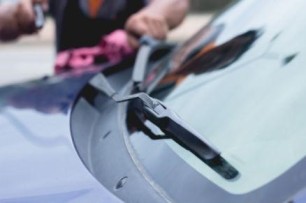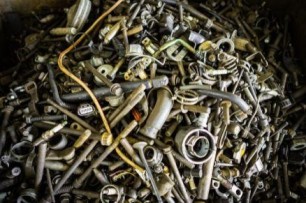General Insurance Blogs, Articles & Updates by - Magma Insurance
Have us call you
- RENEW YOUR POLICY
- BUY NEW POLICY

Here's how to stop your car's wipers from squeaking
The rains might not dampen your spirits on a long road trip, but the high-pitched jarring sound from the wiper blades will definitely. The peaceful sound of the rain, the music coming from the sound system, or the lovely conversations are drowned out by the annoying and shrill sound of the wiper blades, enough to ruin the mood. Not only does it affect the driver’s everyone's spirits, but it also affects the driver's concentration while driving.
Wiper blades can become noisy under several conditions, but the most common is dirt between the windscreen and the blade. A dirty windscreen will hinder the ease with which the blade glides over the screen, thus producing squeaking sounds. Another reason can be a mismatch in the blade's speed and the rain's intensity. If it's not raining heavily, and your wiper blade is set to high speed, it prompts the wiper to repeatedly go over the dry screen, resulting in unpleasant sounds. Squeaking wipers can also indicate worn-out and old wipers, and you must consider investing in a new one.
In this article, we will address some of these problems and a few ways in which you can stop your car's wipers from squeaking.
1. Dirty windscreen:
A dirty windscreen can be a driving hazard. Light refraction, obscured vision, and distracting squeaky wipers can hinder the driving experience. Maintaining your windscreen is imperative for a comfortable and safe ride.
You can avoid dirt and dust from accumulating on your windscreen by washing it with a good quality windscreen cleaner and a sponge. Before taking out your car to drive, ensure that your vision is not compromised.
2. Improper installation:
If your windscreen was recently adjusted or installed and you hear squeaky noises, then most likely, the setup wasn't correctly installed. You might need to remove and reinstall the wiper to rectify the issue. If you are unsure how to set the wiper properly, it is best to consult a mechanic at a trusted service centre.
3. Improper use:
It can become fragile if the wiper is not used correctly or overused. A broken wiper is of no use. Hence it is better to change and optimally use the wiper in the future.
4. Unclean wiper:
Wipers are often neglected when it comes to cleaning and care. It is a relatively straightforward process to clean the wiper blades. Some water, sponge, and soap are all you need to clean the wipers. Remember not to overdo it as fibres or cloth particles may be left behind, which can cause friction, further worsening the situation.
5. Wiper rubber blades:
Wiper rubber blades can go through wear and tear over time, and you should regularly inspect them for any damage. You can change the rubber blades once a year or whenever necessary.
These were a list of things you need to take care of if you hear squeaking or shrill sounds from your wiper blades. Remember that the tiniest discrepancies in seemingly small parts of your vehicle can cause serious driving hazards and even result in fatal accidents if not given timely care.
Regular maintenance and timely change of parts are essential to keep your vehicle working efficiently. Take that extra step towards the safety of your car and invest in car insurance. Buy car insurance online and get a value-added advantage to prevent additional expenses you might incur in damages and repairs.
Click HERE to buy car insurance online.
Disclaimer: The information provided above is for illustrative purposes only. To get more details, please refer to policy wordings and prospectus before purchasing a policy.

All you need to know about road tax in India
Several state and national highways link India's vast geography. The country's roadways network stretches over 5 million kilometres while consistently increasing and is one of the largest roadway networks globally.
This vastly interconnected system is financed by the Indian Government that collects a sum of taxes from the citizens for the regular maintenance of the roads. Therefore, it is integral for every citizen to pay their taxes on time for the smooth functioning of the roadway system.
What is Road Tax?
When purchasing a vehicle, an individual must pay the base manufacturing price and a few extra charges. These additional charges typically include registration fees, relevant motor insurance, and a motor or Road Tax. The road tax is a sum of money paid while purchasing a vehicle in the state or country. The tax differs in all states as it is subjected to different tax structures and clauses.
A certain amount of road or toll tax is levied on vehicles using the state or national highways. These taxes differ according to state regulations, highway distance, and other relevant factors.
Who determines the Road Tax?
These Government bodies typically determine the road tax:
1. The state government levies the state vat tax, toll tax, annual or lifetime motor vehicles tax, and passenger and goods tax.
2. The Central Government levies the GST, customs duty, central excise, central sales tax, and other additional charges depending on the vehicle category.
Who has to pay the Road Tax?
While purchasing a vehicle, motor insurance is not the only cost that the individual must incur. The road tax is a compulsory tax that the individual must pay while purchasing a new vehicle. In India, this tax is charged on both private and commercial vehicles. Every individual who purchases motorised vehicles such as bikes or scooters, cars, auto-rickshaws, or even buses and trucks, needs to pay the tax irrespective of the vehicle's size.
Although the vehicle's manufacturing cost price primarily determines this tax, it is typically calculated considering other factors such as the motor or engine capacity, seating capacity, weight, and cost price. Thus, the road tax paid by every individual differs based on the vehicle as well as the state of purchase.
When and Where to pay the Road Tax?
An individual must pay the road tax for a vehicle during its registration. Depending on the state's mandate, the tax can be paid with flexibility, either one-shot payment or in yearly instalments. The vehicle owners may choose to pay the tax offline or online as per their convenience. If one is shifting their residence to another state, they need to re-register their car in the RTO of the new state and then repay the road tax.
To sum up, paying the road tax is an essential duty of every vehicle owner as a responsible citizen to help contribute and maintain the country's roadway network. However, being responsible for your vehicle's safety is equally important, and you can achieve this by purchasing a motor insurance plan that offers complete protection to your valuable asset.
Click HERE to know more about motor insurance.
Disclaimer: The information provided above is for illustrative purposes only. To get more details, please refer to policy wordings and prospectus before purchasing a policy.

Did you know about these side effects of excessive water consumption
Water is the solution to all problems, according to most people. And no doubt, it is indeed one of the most potent ingredients for a healthy life. Good skin, weight loss, better hair, or even mild headache, water is a cure for all. It is an essential resource for life to exist and flourish. However, excess of anything is poison. Similarly, excessive consumption of water can have several complications and side effects.
Surprising, isn’t it? This article is just for you if you want to know how overhydration can harm you. We will look at all the side effects that excessive water consumption can cause. Let’s take a look at different kinds of overhydration and their causes.
1. Overdrinking:
Overdrinking is a condition that happens when you drink too much water and your kidneys fail to flush out as much urine. This leads to water accumulating in your bloodstream, causing the dilution of essential substances.
2. Water retention:
This situation arises when the body cannot flush the water correctly due to various medical conditions. Several heart diseases and liver and kidney problems may cause water retention in your body.
The colour of the urine is a good indicator of water levels in your body. Pale yellow colour urine indicates the optimal amount of water in your body, while darker colour urine indicates dehydration. If, however, your urine is transparent, that is a clear indication of overhydration.
Now let’s take a look at the effects of overhydration:
1. Water intoxication:
When you consume more than five to six litres of water daily, you may start seeing symptoms of water intoxication. Some minor symptoms include headaches, cramps, spasms, vomiting, and fatigue. The more severe consequences of water intoxication can be seizures or blackouts.
If you start noticing symptoms like those mentioned above, rush to the nearest hospital. The excess amount of water in your body can lead to fluid build-ups in the cells leading to swelling. Swelling can lead to coma and seizures and can even be fatal if not given immediate medical attention.
2. Nausea or vomiting:
The symptoms of dehydration and overhydration are almost interchangeable. Since too much water is accumulated in the system, the body rejects the excess. This leads to diarrhoea or vomiting.
3. Headaches:
As the body’s salt levels deteriorate significantly, the cells swell. The swelling causes pressure inside the brain cells, causing severe headaches. Sometimes it can lead to clotting and troubled breathing as well.
4. Weakness and lethargy:
Like salt, the electrolytes dilute due to excess water in the body. Electrolytes are crucial when it comes to maintaining energy levels in your body. An imbalance in the electrolyte levels can lead to fatigue and weakness.
It can also cause muscle cramps and spasms. Your kidneys are working extra to flush out the unwanted water. This creates a hormonal reaction leading to drowsiness and feeling less energetic.
5. Swollen body parts:
Due to an increase in the water retention in your body, and the electrolyte imbalance, you may notice swelling in different parts of your body, such as the legs, lips and fingers. You may also notice a discolouration resulting due to hormonal changes caused by excessive water.
These are a few side effects of excessive water consumption. Excess water in your body can bring about various hormonal and other significant changes. Treatment for these should be taken under the guidance of a medical practitioner to avoid further complications. However, an immediate remedy to overhydration is the consumption of salts or electrolytes. Regaining the concentration of salt and electrolytes in your body can be a temporary cure.
Just like overhydration, there might be other issues in your body that you might not be aware of. Get an expert opinion to recognise any underlying issues and address them with proper and timely medication. Many online health insurance companies provide comprehensive coverage on all such check-ups and treatments that you might want to look into. Take advantage of this feature and benefit yourself and your loved ones.
Click HERE to know more about online health insurance companies.
Disclaimer: The information provided above is for illustrative purposes only. To get more details, please refer to policy wordings and prospectus before purchasing a policy.

Disadvantages of using duplicate spare parts for your car
Spare parts can either extend the life of a vehicle or cause it to fail instantly. Often fake replacement parts are created without the consent of the manufacturer. As a result, it is difficult to distinguish between genuine spare parts and counterfeit replacements. Furthermore, because fake parts are less expensive, consumers are more likely to purchase them to save money and fail to verify their validity.
The performance of fake spare parts is inferior to that of original replacements. You never know when they'll give out and do harm to the car's workings or its passengers. Purchasing car insurance can protect you from any damage caused to your vehicle. Always compare various new car insurance rates to find the best deal for you.
Here are some of the reasons why fake spare parts are dangerous.
1. Safety is at risk:
Fake spare parts may endanger not only the safety of the vehicle but also its passengers. To give an example, if you were to buy fake brakes, you might have trouble applying brakes on time. Fake engine spare parts can also result in a short circuit, potentially dangerous to the engine's functionality. As a result of these factors, counterfeit replacement parts are considered a safety hazard.
2. Additional expenses:
The majority of individuals believe that acquiring cheap spare parts will save them a significant amount of money. However, it results in increased expenditure because the fake spare component will often fail to function. Instead, authentic spare parts will save money because they will last longer and come with a warranty.
3. Has an impact on the vehicle's warranty:
Warranties are valid guarantees for a specific period. The carmaker agrees to repair any defective spare parts or repair the vehicle. Using fake spare parts may void the warranty completely. Another critical reason to avoid using counterfeit spare parts is to protect yourself from identity theft.
4. Safety concerns for other vehicles:
If you use forged spare parts, your vehicle's systems will not perform to their maximum capacity. This means you will be putting other people in danger when you drive.
5. Poor quality:
Given the heavily low price of fake spare parts, the companies are frequently forced to compromise quality and appearance. Moreover, the materials utilised are of poor quality. As a result, these parts are not constructed to survive for an extended period. Therefore, spending a little more money on authentic parts is preferable rather than settling for low-quality counterfeit replacement parts that pose a higher risk.
6. Other potential risks:
For various reasons, it's best to avoid using counterfeit replacement parts. Like, at higher speeds, fake tyres might deflate and fall apart. Fake oil filters may be ineffective in filtering, making the counterparts go dry. This will have an impact on the engine's operation. Installing cheap seatbelts and airbags is a terrible idea that can be life-threatening during mishaps.
In addition to reducing the vehicle's depreciation value, buying fake parts is a poor decision for various reasons. These faulty spare parts can betray at any point, making them more dangerous. So, as a sensible customer and a responsible citizen, and refuse to buy fake spare parts. Also, check out the most affordable new car insurance rates that can protect you in the event of an accident.
Click HERE to know more about the new car insurance rates.
Disclaimer: The information provided above is for illustrative purposes only. To get more details, please refer to policy wordings and prospectus before purchasing a policy.

